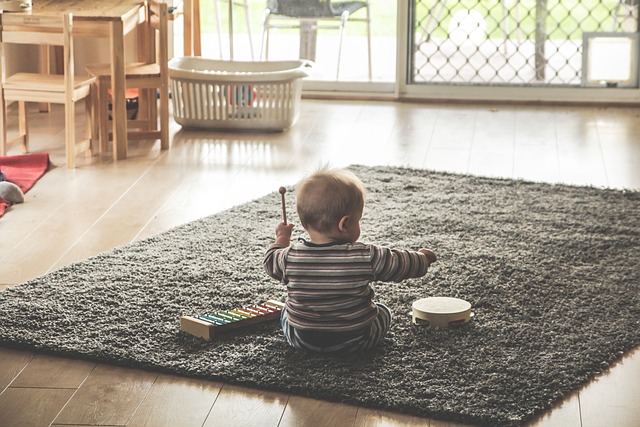The Stages of Child Development Explained

Introduction
Childhood development occurs in stages as they progress from infant to adolescence. Each stage is unique and introduces new talents and powers. Babies begin by learning to smile and crawl. Toddlers are curious and begin to explore and talk.
Young toddlers learn through play and form friendships. School-aged children develop knowledge and independence. Teenagers experience a variety of changes as they prepare for adulthood. Understanding these stages of child enables parents to promote their children's growth and development.
Child development is a fascinating journey with different stages.
Child's developmental milestones allow you to ensure that they are growing and learning. Knowing these stages of child allows parents to encourage their child development.
Monitoring child's Growth & Development :-
Watching your child grow and develop is one of the most thrilling aspects of parenthood. Keep communication open by conversing very often and being supportive. Pay attention to your child's regular activities and conduct. Take note of any new abilities or behavior changes. By concentrating on these areas, you can help your child grow healthy and happy at all stages.
- Track Physical , Developmental Milestones
- Daily Observations
- Observe Cognitive Development
- Watch Social and Emotional Growth
- Keep Communication Open
- Regular Check-Ups
- Parental Involvement
- Celebrating your child's accomplishments
You can provide age-appropriate activities and challenges to encourage learning and growth. Recognizing their progress motivates them to continue learning and growing. Tracking your child's activities will help in its growth and development. Monitoring your infant's developmental milestones is crucial to ensure their healthy growth.
Different Stages of child development
Infancy is a period of rapid growth and development. Babies grow rapid during their first two years of life! They learn to smile, sit up, crawl, and then walk. They also begin to pronounce their first words and identify familiar people.
Tracking infant milestones is critical for ensuring that your kid grows and develops.
Physical Development:
Babies become taller and heavier. They also practice motor skills such as crawling, standing, and walking.
Cognitive Development:
Babies begin to recognize faces , shapes ,animals, respond to sounds, and understand cause and effect.
Social and Emotional Development:
Babies develop strong ties with their caregivers, begin smiling, and learn to convey their emotions.
Tips:
- Create a safe and exciting environment.
- Establish routines to help your infant feel secure.
- Talking, singing, and reading with your little one can help them improve their skills.
- To instill a sense of security in your infant, respond quick to his or her demands.
- It is critical to ensure that your child engages in logical thinking, sensory and motor skills, cognitive skills and creativity developmental activities. Our playgroup learning kits are to help children develop via engaging and interactive activities. This kit includes 200+ worksheets , 30+flashcards , Pre-writing skills , Good habits trackers and many exciting activities.
Early childhood is mark by rapid physical, cognitive, and linguistic development. Children become more independent and begin to explore their surroundings. Toddlers are energetic and curious. They begin to explore on their own and speak in small sentences. They also play with other children and develop key skills such as sharing and taking turns. This stage focuses on imagination and play-based learning. Children enter preschool or kindergarten and begin to learn letters, numbers, and shapes.
Physical Development:
Improvements in fine motor skills, Vowel and Consonant sounds coordination, and balance.
Cognitive Development:
Improved problem-solving skills, imaginative play, and the beginnings of understanding concepts such as numbers and letters.
Language Development:
Rapid vocabulary development, comprehensive phrase formation, and comprehension of instructions.
Social and Emotional Development:
Building friendships, learning to share, and regulating emotions.
Tips:
- Encourage play and discovery.
- Encourage social contacts amongst classmates.
- Provide learning opportunities through literature, educational toys, and activities like reading and comprehensive cards , word cards.
- Praise positive conduct to promote more of it.
- Answer questions and listen to help them learn and feel appreciated.
- It is important to ensure that your child pronounces, read and spell almost every word of the English language. Our Phonics learning kit is suitable for the age group 3-6 years with 58 story cards , digraphs and many more. There are many other learning kits for child development.

Middle childhood is a period of consistent growth and skill development. Children develop self-awareness and the ability to think in complicated ways. School becomes an important aspect of a child's life. They learn how to read, write, and do simple math. Friendships grow stronger, and they begin to grasp teamwork and cooperation.
Physical Development:
Consistent growth, enhanced strength and coordination.
Cognitive Development:
Enhanced logical thinking with mind mapping, problem-solving abilities, and academic skills.
Social and Emotional Development:
Developing a sense of self, understanding others' perspectives, and strengthening friendships.
During this time, parents notice their children becoming more independent and capable. Balancing educational commitments with extracurricular activities and social life becomes an important priority.
Tips:
- Encourage academic , and extracurricular activities.
- Encourage your child's development through friendships and team activities like time puzzles , board games.
- Setting goals and assigning work might help to teach responsibility.
- Encourage your child's interests and activities so that they can discover their passions.
- ClassMonitor has the Scholar League Kit It will boost your child skills and establish a solid foundation of IQ, EQ, and SQ for long-term impact. This kit includes worksheets such as brain boosting , general awareness , world of words, cryptogram , social development activities, country flags, flashcards and many more.
Adolescence (12-18 Years)
Adolescence is a period of tremendous physical, emotional, and social development. Teenagers gain a greater feeling of individuality and freedom. Teenagers experience many physical and emotional changes. They want greater independence and begin to plan for their future. This stage is a period of self-discovery and preparation for maturity.
Physical Development:
Puberty involves fast growth and hormonal changes.
Cognitive Development:
Abstract thinking, reasoning, and future planning skills are all being develop
Social and Emotional Development:
Creating a feeling of self, pursuing independence, and cultivating deeper relationships.
Adolescence can be a difficult period for both parents and teens. Managing independence, identity, and peer pressure demands patience and compassion. Open communication and trust are key.
Tips:
- Encourage open, honest conversation.
- Support your teen's interests and goals.
- Enhance critical thinking and decision-making abilities.
- Be present in their lives without being obtrusive. Observe interest in their activities and friends.
- Allow your teenager to make their own decisions while providing guidance.

Conclusion
Childhood development presents distinct difficulties and rewards, molding youngsters into well-rounded individuals. By being aware and engaged, parents may help their child grow and lay a solid basis for the future. Each stage, from infant to puberty, presents distinct challenges and developmental milestones. Infant develop, learning to crawl, walk, and talk. Tracking infant milestones provides crucial information about your child's growth.
Toddlers are energetic and curious, investigating their surroundings and learning to speak. Each stage is unique and full of opportunities for growth and learning. Stages of child are crucial and build on the preceding one, resulting in a well-rounded human.
Children evolve through physical, cognitive, and socio-emotional stages. Each stage of development is mark by distinct modifications. ClassMonitor will improve your children's academic progress. To help your child get a jump start, ClassMonitor kits into their daily routine. With learning kits this also includes the live classes like public speaking , drawing , math live class which will inculcate speaking with confidence in the child and also online recorded classes for the parents to guide their child.




